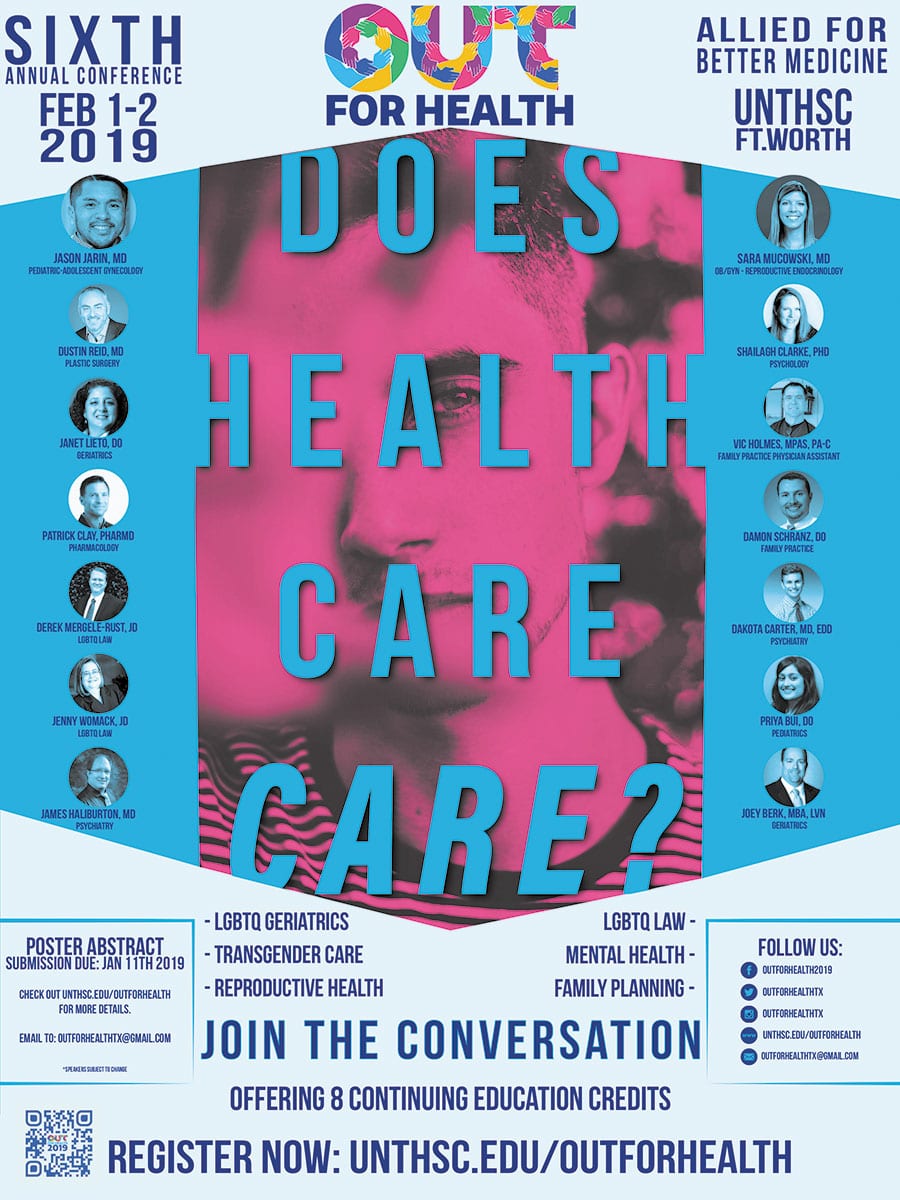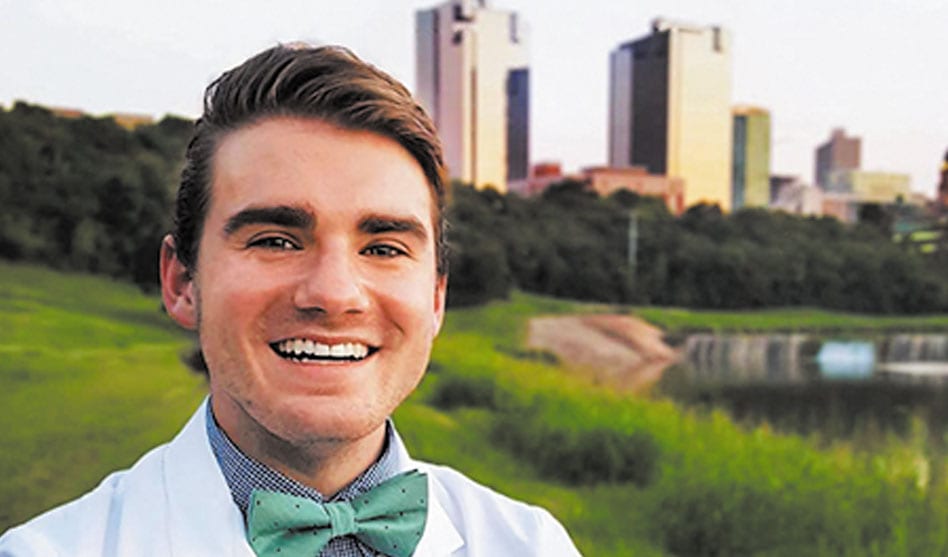Medical student Matthew Mitts

Conference set in Fort Worth aims to help medical professionals better treat LGBT patients
DAVID TAFFET | Senior Staff Writer
taffet@dallasvoice.com
Out For Health, slated for Feb. 1-2 in Fort Worth, is the only LGBT health conference held annually in Texas, and in most cases, it is the only training medical students, physician’s assistants, nurses and pharmacist students in LGBT get in health care. And Matthew Mitts, a second-year medical student at University of North Texas Health Science Center in Fort Worth, where this year’s conference will be held, pointed to some alarming statistics that show the need for the conference.
Surveys show that one in five LGBT people avoid healthcare because of fear of discrimination. More than 56 percent of LGB and an astounding 70 percent of transgender people report being subjected to discrimination, physical abuse or having a healthcare professional be afraid to touch them.
And a majority of physicians are afraid to ask a patient about their sexual orientation, while a majority of LGBT people are comfortable talking about it and think it’s important for their healthcare provider to know.
 According to Vic Holmes, a family practice physician’s assistant and assistant professor at UNTHSC, there isn’t an LGBT awareness track in medical schools.
According to Vic Holmes, a family practice physician’s assistant and assistant professor at UNTHSC, there isn’t an LGBT awareness track in medical schools.
Holmes’ track at Out For Health is creating a welcoming environment for the LGBT community. He said one way to indicate to LGBT patients that your office welcomes them as patients is by leaving items in the waiting room that indicate the practice is affirming. That might include brochures on lesbian health or transgender health. It might include a rainbow pin worn by a receptionist. Photos around the waiting room might include same-sex couples.
“That says a lot to people who need to see them,” Holmes said.
Those in medical fields who are welcoming and affirming to LGBT patients should make sure their names are included in LGBT community guides, he suggested, adding that those guides are a good place for people in the LGBT community to find providers.
Resource Center keeps a list of LGBT-welcoming medical providers. Transcendence keeps track of those welcoming the transgender community. And of course, some health professionals advertise in local LGBT publications like Dallas Voice or OUT North Texas.
And, Holmes said, being “known” in the community goes both ways: “If someone says they’re friendly and they’re not, that gets spread, too.”
But Holmes said he hopes the LGBT community understands when providers are trying. When you hold something against professionals who are trying to get it right, he said, that only leaves them with bad experiences.
If a doctor notices a gay man’s wedding ring and asks his wife’s name, the best answer is, “Husband’s name,” and give the name, he suggested.
Pointing to his own experience, Holmes said that what could have been awkward turned into a wonderful relationship with his healthcare provider. He had just moved to Plano, he said, and had an appointment with a physician across the street from Prestonwood Baptist Church. To his surprise, one of the questions on the intake form was “sexual orientation.”
He said the initial conversation was a little awkward, but when she asked him if he was seeing anyone, she was surprised to learn he’d been with his partner at the time longer than she had been married.
“There’s never a mistake,” Holmes said. “Always a learning opportunity.”
As for special health concerns for the LGBT community, the first one anyone thinks of is HIV. Actually, though, the Centers for Disease Control recommends everyone be tested for HIV, regardless of their sexual orientation. One difference might be that many members of the LGBT community get themselves tested regularly and don’t need the additional test at the doctor’s office on every visit.
There are specific concerns to address for LGBT patients. For example, lesbians have a higher rate of breast cancer because of lower rate of pregnancy. And trans men and women need hormone levels checked and doctors need to be aware of any past or upcoming medical procedures, if applicable.
“But overall, the needs are the same,” Holmes said.
The best way for medical professionals to learn their patient’s needs, he said, is to have a conversation with your patient, not a confrontation.
Mitts said the conference next weekend will include 14 different talks about issues related to the LGBT community, including geriatric care, pediatrics, mental health and more. He said one thing healthcare providers who work with LGBT patients definitely need to understand is PrEP for preventing HIV.
“Some doctors don’t know what it is or have misinformation,” he said.
Mitts said he heard one story of a doctor who wanted to begin treatment for HIV for a patient who asked for PrEP. Another doctor refused to continue seeing his patient because that patient asked to go on PrEP.
Several workshops will deal with management of transgender patients. Included will be a plastic surgeon discussing gender transition surgery and an attorney discussing the legal aspects of transitioning. While a doctor certainly won’t handle legal aspects, Mitts said, it is important that doctors understand what is involved.
Another attorney will talk about forming a family. Again, while doctors wouldn’t participate in the legal part of creating a family, they need to understand the variety of ways LGBT families are formed and then treat these families as they’d treat others.
The sixth annual Out for Health conference takes place on Feb. 1-2 at UNTHSC Fort Worth, 3500 Camp Bowie Blvd., Fort Worth. Community professionals as well as students are invited to attend. Register at UNTHSC.edu/outforhealth












